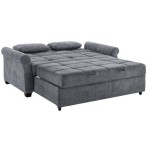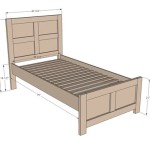Queen vs. King Size Beds: The Ultimate Guide
Choosing the right bed size is crucial for ensuring a comfortable and restful night's sleep. Two popular options are queen and king size beds, each with its own unique advantages and disadvantages. This comprehensive guide will delve into the essential aspects of queen and king size beds to help you make an informed decision based on your individual needs and preferences.
1. Dimensions
The primary difference between king and queen size beds lies in their dimensions. King size beds typically measure 76 inches (193 cm) wide and 80 inches (203 cm) long, while queen size beds are slightly smaller at 60 inches (152 cm) wide and 80 inches (203 cm) long. The extra 16 inches of width in king size beds provides ample space for couples to spread out and sleep comfortably without feeling cramped.
2. Sleeping Surface
The sleeping surface area of a queen size bed is approximately 30 square feet, making it suitable for single sleepers or couples who prefer a cozy and intimate sleeping environment. King size beds, with a sleeping surface area of around 40 square feet, offer more space for couples to stretch out and move around without disturbing each other. This makes them an ideal choice for couples who value spaciousness and personal space in bed.
3. Number of Occupants
As the larger of the two sizes, king size beds are typically recommended for couples who prefer ample room to move around and sleep comfortably. The extra width and length provide enough space for both individuals to have their own sleeping "zone" without feeling like they are crowded or sharing too close of a space. Queen size beds, on the other hand, are better suited for single sleepers or couples who don't mind being a bit closer together while sleeping.
4. Bedroom Size
The size of your bedroom will also play a role in determining which bed size is right for you. King size beds are best suited for large, spacious bedrooms where there is plenty of room to move around the bed and accommodate other furniture. Queen size beds are a more versatile option and can fit comfortably into both smaller and larger bedrooms. Consider the proportions of your bedroom and the desired amount of space around the bed before making a decision.
5. Budget
King size beds tend to be more expensive than queen size beds, both in terms of the initial purchase price and ongoing costs. This is because they require more materials to manufacture and larger bedding sets to fit them. If budget is a major concern, a queen size bed may be a more financially viable option. However, if space and comfort are your top priorities, a king size bed may be worth the extra investment.
6. Personal Preferences
Ultimately, the best way to decide between a queen and king size bed is to consider your personal preferences and needs. If you value spaciousness, privacy, and plenty of room to move around, a king size bed might be the right choice for you. If you prefer a more cozy and intimate sleeping environment or have a smaller bedroom, a queen size bed may suffice. It's also a good idea to visit a furniture store or showroom to lie down on both sizes of beds to get a better sense of the difference in comfort and space.

King Bed Vs Queen B2c Furniture

King Vs Queen Bed Size Mattress What Is The Difference Nectar Sleep

King Vs Queen Size Mattress Dreamcloud

King Vs Queen Bed Detailed Mattress Comparison Turmerry

King Vs Queen Bed What S The Difference Amerisleep
.jpg?strip=all)
King Vs Queen Size Beds Differences Comparison And Benefits

The Difference Between A Queen And King Bed Bedinabox

Queen Vs King Bed Size Comparison What Is Better Sleep Advisor

What Is The Difference Between Queen And King Bed Pediaa Com

King Vs Queen Bed Difference Dimensions Pros And Cons 101







